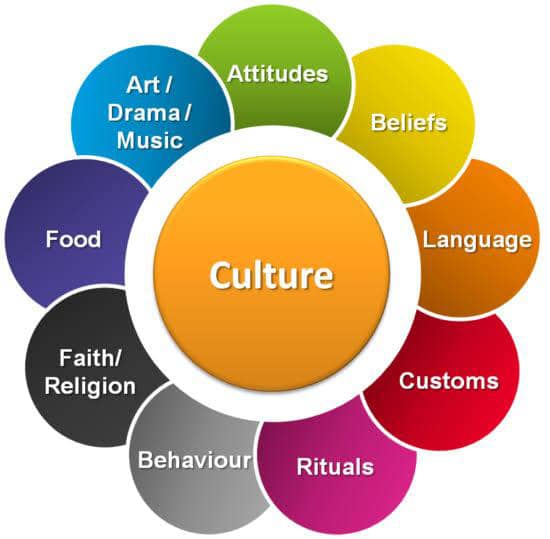The Fabric of Human Society

By: Otesanya Aderomola Adejoke
Culture is an intricate and defining aspect of human life, shaping how we perceive, interpret, and interact with the world around us. It is the lens through which individuals and societies view their realities, influencing behaviors, beliefs, values, and traditions.
Culture encompasses the shared customs, practices, languages, arts, and institutions that characterize a particular group or society, acting as the glue that binds people together and the compass that guides their interactions.
Culture is dynamic, evolving through interactions, experiences, and the passage of time. It is not static but constantly adapts to new circumstances, ideas, and influences. This evolution of culture can be seen in the way societies change their practices, adopt new technologies, or integrate aspects of other cultures into their own.
The significance of culture lies in its ability to provide a sense of identity and belonging. For individuals, culture offers a framework within which they can understand their place in the world. It shapes worldviews, social norms, and the way people communicate. For societies, culture fosters social cohesion, enabling groups to function together harmoniously and work towards common goals. It is also a source of pride, as people often take pride in their cultural heritage, celebrating it through rituals, festivals, and art.
Culture is composed of several key elements, each playing a crucial role in its structure:
1. Language: Language is the primary vehicle of communication and the cornerstone of culture. It allows for the transmission of ideas, values, and traditions from one generation to the next. Through language, people express their thoughts, emotions, and cultural identity.
2. Traditions and Customs: These are the established ways of doing things within a culture, frequently passed down through generations. They include rituals, ceremonies, holidays, and everyday practices that reflect a society’s values and beliefs.
3. Values and Beliefs: Values are the principles and standards that a culture considers important, while beliefs are the shared convictions that people hold about what is true or real. Together, they shape how individuals in a culture perceive the world and their place in it.
4. Art and Literature: Cultural expressions through art, music, dance, literature, and other forms of creativity are powerful ways of communicating cultural values and experiences. They provide entertainment and serve as a reflection of a society’s historical and contemporary realities.
5. Social Institutions: These include the structures and organizations, such as the family, education systems, religious institutions, and governments, that support and perpetuate cultural norms and values. They help to maintain social order and provide the means for cultural transmission.
In today’s interconnected world, globalization has had a profound impact on culture. The exchange of ideas, goods, and people across borders has led to cultural diffusion, where elements of one culture are adopted by others. While this can lead to greater cultural understanding and the blending of cultural practices, it can also result in the loss of cultural identity and the homogenization of cultures.
Globalization has also led to the rise of cultural hybrids, where new, mixed cultures emerge from the blending of different cultural elements. This can be seen in the fusion of music genres, culinary practices, and fashion styles from various parts of the world.
However, the impact of globalization on culture is not without its challenges. There is a growing concern about cultural imperialism, where dominant cultures, often from economically powerful nations, overshadow and suppress local cultures. This can lead to the erosion of cultural diversity and the marginalization of less dominant cultures.
In modern society, culture plays a critical role in shaping our identities and guiding our interactions. It informs our choices, influences our behaviors, and provides a sense of continuity in a rapidly changing world. As societies become more diverse, understanding and respecting different cultures has become increasingly important.
Cultural awareness and sensitivity are essential for fostering mutual respect and coexistence in multicultural societies. By recognizing and appreciating cultural differences, individuals can contribute to a more inclusive and harmonious world. Moreover, preserving cultural heritage and promoting cultural exchange are vital for maintaining the rich tapestry of human experience.
In conclusion, culture is the essence of human society, a complex web of traditions, values, beliefs, and practices that define who we are as individuals and as communities. It is the force that shapes our identities, connects us to our past, and guides our future. In an ever-changing world, culture remains a constant, reminding us of our shared humanity while celebrating the diversity that makes our global society so vibrant and unique. Understanding culture, therefore, is not just about studying the past but also about navigating the present and shaping the future.










